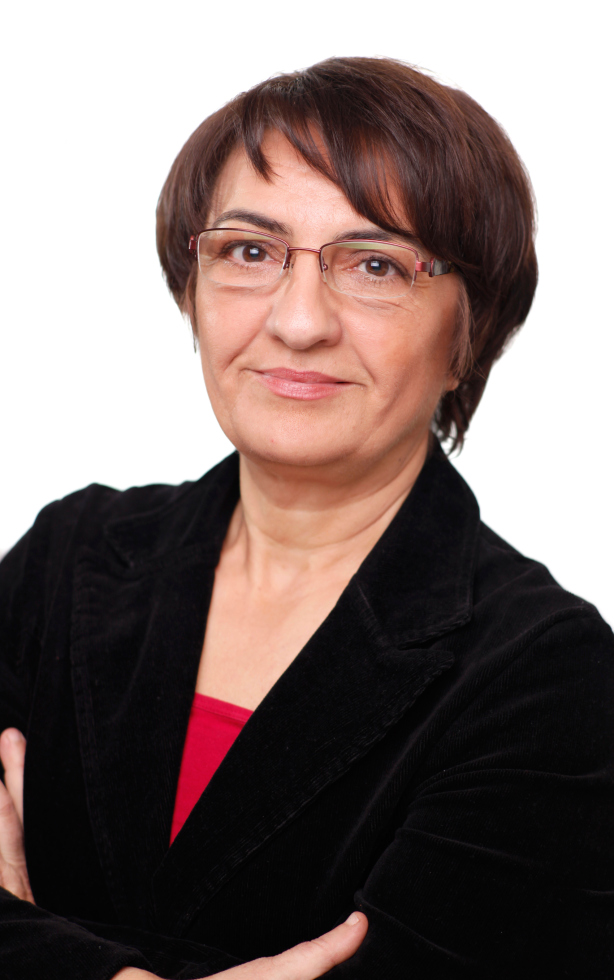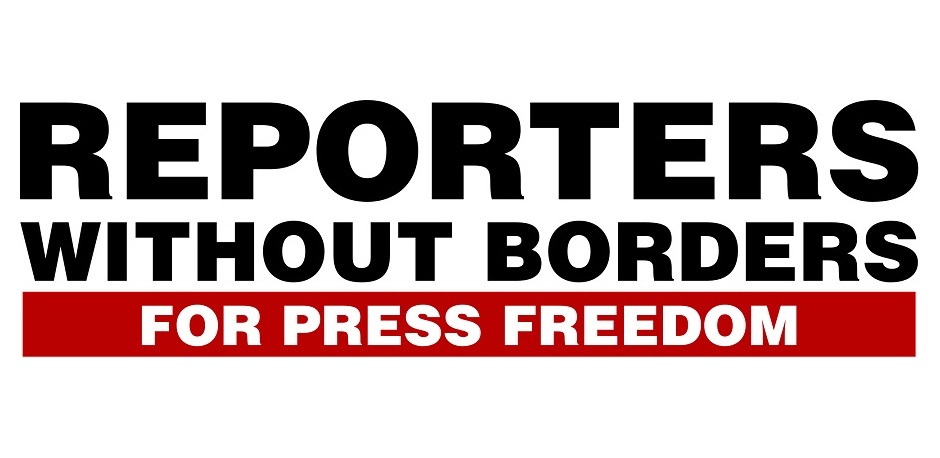BANJA LUKA, 14.12.2017. – Although there are no reliable statistics on the topic, union activists are unanimous in their judgement that journalists are the least unionised profession in Bosnia and Herzegovina (B&H). Most editorial offices and media houses don’t have union organisations, and where these are present, they are often under the influence of management or politics. At the same time, industry-wide unions and union alliances, which ought to be uniting media professionals, are themselves fragmented and divided, which additionally blunts the blade of union struggle.
Why are journalists, even those who bravely broach the most controversial societal topics like organised crime and corruption, unready to fight for themselves and for dignified work in their profession?
Mariana Šarčević, former president of the Union of media and graphic-workers of Republic of Srpska (RS), says journalists often aren’t aware that they are, legally speaking, workers like any other, and that only joined in a union can they successfully fight for their worker’s rights.
-The second problem is insufficient knowledge about unions, and a third the economic situation in society as a whole, which causes all workers to fear losing their job, and so many, following the local principle of “daj šta daš” (i.e. “give what you give”, which is to say they accept anything their employers offer) accept conditions forced on them by employers- Mariana Šarčević says.
Nonetheless, after many years of a career in journalism and the union struggle, Mariana too is following the footsteps of many of her colleagues: she has left the profession and got a job in a state institution.
She is succeeded as president of the union of media workers and graphics-makers of RS by Nikola Šobat, employed at a governmental textbook authority instead of the media. Immediately upon taking his duties he has pointed out the low level of union organising among media workers, and promised that the solution to that problem would be a priority in his work.
-We must raise the consciousness among journalists of union organising and the signing of collective bargaining agreements as the most efficient way of protecting worker’s rights- Šobat says. He admits, however, that there are significant problems even with collective bargaining in this field.
– We are expected to negotiate with employer consortiums covering a wide range of activities, from media to print-shops and paper manufacturers. It is clear that workers making toilet paper and those making TV news are not in the same position and do not have the same interests – Šobot says.
When it comes to worker’s rights, one of the most important differences between those making paper and those making news is unregistered, illicit labour. An unheard of issue in factories, illicit employment is a burning issue for media workers in B&H. It is not uncommon for journalists and media professionals in B&H to spend a decade working with no legal status, or with degrading and extremely unsafe contracts, in some cases consecutive contracts each lasting no more than a month at a time. By some estimates, up to 40% of media workers are in such a position, for which unions have little in the way of a response.
-We are sorry, but those workers don’t exist for us. Formally speaking, they legally aren’t workers and must seek their rights in another way – Nikola Šobat says. Nonetheless, the union of media workers and graphics-makers of RS has spent years wrestling with this problem, behind which, as is reasonably suspected, is a non-aggression pact between employers and regulators. Union members have asked representatives of the RS Government and the Inspectoriat of RS to “change their modus operandi”, since illicit work is publicly visible in the media.
-We have told them, you don’t have to go out in the field, just follow the author signatures in the media, and check if these people are employed, registered and paid for their work. Follow the online-only media, and ask yourself how it is possible that an online platform, with only one employee, produces news content 24 hours a day, even on Sunday and during holidays– Mariana Šarčević says.
These appeals have gone unanswered, but many other examples, particularly from local media, which are unionised as a rule rather than as an exception even today, show that the struggle is not in vain.
This is how Radio Prnjavor’s employees received back-pay and fought out a regular payment of salaries and benefits following a strike. A similar situation happened in the local radio Srbac, which was facing shutdown in 2014, after four decades of airtime. It was only fierce union struggle that saved the workers of the PRESS RS daily from not receiving owed wages even after shutdown.
-During the last two years of this publication’s existence, the numerous problems attached to working there would have primarily affected workers and their salaries had there been no union activists, who daily negotiated with employers and pressured them to fulfil their duties. Employers at first resisted and tried to pressure unionisers, but when they realised that 80% of workers had joined together and were in unison, they had no choice – journalist Andrijana Pisarević says. In those turbulent times, she was the president the Union organisation of Press RS, and today she is the vice-president of the union of media workers and graphics-makers of RS. Although Press RS was shut down last year, the workers are owed only minimal amounts, and their interests are still represented in court by the union in a struggle for their rights and monetary compensation.
Instructed by this experience, Andrijana Pisarević is one of the loudest advocates for the unionisation of journalists, but many of her colleagues don’t trust the power of union organising.
Among the sceptics is Benjamin Butković, journalist and editor of Radio and Television of Bosnia and Herzegovina, the national public service broadcaster.
-A union organised like so and with this kind of leadership is needed only to a small interest group among the union decision-makers and to employers. I don’t need a union for the sake of pickled foods and an announcement once I’ve been beaten in the street. I need a union which will fight for me to be properly paid for my work, for me to have health insurance and pension funds, for my employer to guarantee conditions for honest and responsible work, a union fighting the fights of unions, not those of everyday politics – Butković says.
Dejan Šajinović, a journalist of “Nezavisne Novine” (‘Independent News’ in English), considers that this media house, as a public company, “has a right to a position on whether it allows its journalists to unionise or not”.
-It has been shown in practice that our union organisations are, in general, not just in the media, in a close relationship with politics and that laws and regulations are binding only to the public sector, while workers in the private sector are left to the good will of employers– Šajinović said.
Elvir Halilović , a journalist of the radio-television of Vogošće believes joining a union is exceptionally important, especially in local media, but has nonetheless, as have most of his colleagues, left the Union of graphical, publishing and media workers of B&H, after many years of membership. He was disappointed many times, and the straw which, he claims, broke the camel’s back was the matter of the new Law on work when the leader of this union Amer Toskić, as he says “openly supported employees in public institutions who were protesting the decrease of daily lunch funding from 15BAM to 8BAM” while those working in local media were left without support.
-I like the concept of the Association of B&H journalists and I hope that, along with the association, talk of a new “real” union can be started, a union which will have an ear for all media workers and manage to find a position for the betterment of all of us- Halilović said.
Many other journalists from the Federation of B&H are calling out Amer Toskić, a long-time leader of the Union of graphical, publishing and media workers of B&H for the conditions in the unions. During his tenure this union stepped out of the Alliance of independent unions of B&H in 2013, and at the time Toskić announced that he would “devote maximal attention in the aid of journalists exposed to ever greater attacks”. We were unable to find out how successful he thinks he has been in this task, and his response to accusations by journalists generally, who among other things hold him in contempt for an enormously high salary, as Toskić has not answered his phone for days.
Dr Suljo Borovina, sociologist of work
Hard times for unions
-Not just in the Balkans and in B&H, but in the whole of Europe, today there isn’t an environment for union activities- said Doctor Suljo Borovina, a sociologist of work and professor emeritus of the Faculty of political sciences in Sajarevo. He adds that since the eighties the area in which unions were effective has constantly narrowed. In the era of neoliberalism, founded on, on Borovina’s view, a “market fundamentalism”, all power is concentrated in financial corporations, and labour is marginalised.
-In B&H we find centre-stage a belated primitive accumulation of capital, in which everything is permitted, and new Laws on work don’t recognise unions as social partners. In the media an added problem is fragmentation. If we consider that not even at the University of Sarajevo, a public university, we were unable to unionise, what then can we expect from journalist- Dr. Borovina concluded.
 This article has been produced as a part of the project Western Balkan’s Regional Platform for advocating media freedom and journalists’ safety with the financial assistance of the European Union. The contents of this article are the sole responsibility of the BH Journalists Association and its authors, and can in no circumstances be regarded as reflecting the position of the European Union.
This article has been produced as a part of the project Western Balkan’s Regional Platform for advocating media freedom and journalists’ safety with the financial assistance of the European Union. The contents of this article are the sole responsibility of the BH Journalists Association and its authors, and can in no circumstances be regarded as reflecting the position of the European Union.








